My connection with Elisabeth Schwarz came as a result of a wardrobe crisis. A trip to Saudi Arabia was imminent, and I had no idea what to wear. Headscarf? No headscarf? What kind of loose clothing? How loose? I jumped into the Overland Middle East Facebook group and started typing, hoping for an answer. Several days went by before a member responded: “Here is the blog of our friend Elisabeth. She is a solo female traveler. Maybe the photos in her blog will give you some inspiration for clothing.”
Elisabeth gave me much more than inspiration for clothing. A quick scroll through her blog showed snapshots of her Toyota Hiace van (“Lola”) parked next to rolling dunes occupied by curious camels, camped near the Door to Hell in Turkmenistan, and Elisabeth herself, wearing sunglasses and a green headscarf.
During a recent interview, Elisabeth revealed valuable insights about traveling as a solo female overlander throughout Russia, Central Asia, Iran, the Middle East, and the Arabian Peninsula. She has much to share about shipping her van from Australia to Russia, overlanding with her dog, Rexelby, overcoming biases, and what it was like to spend a year in Saudi Arabia.
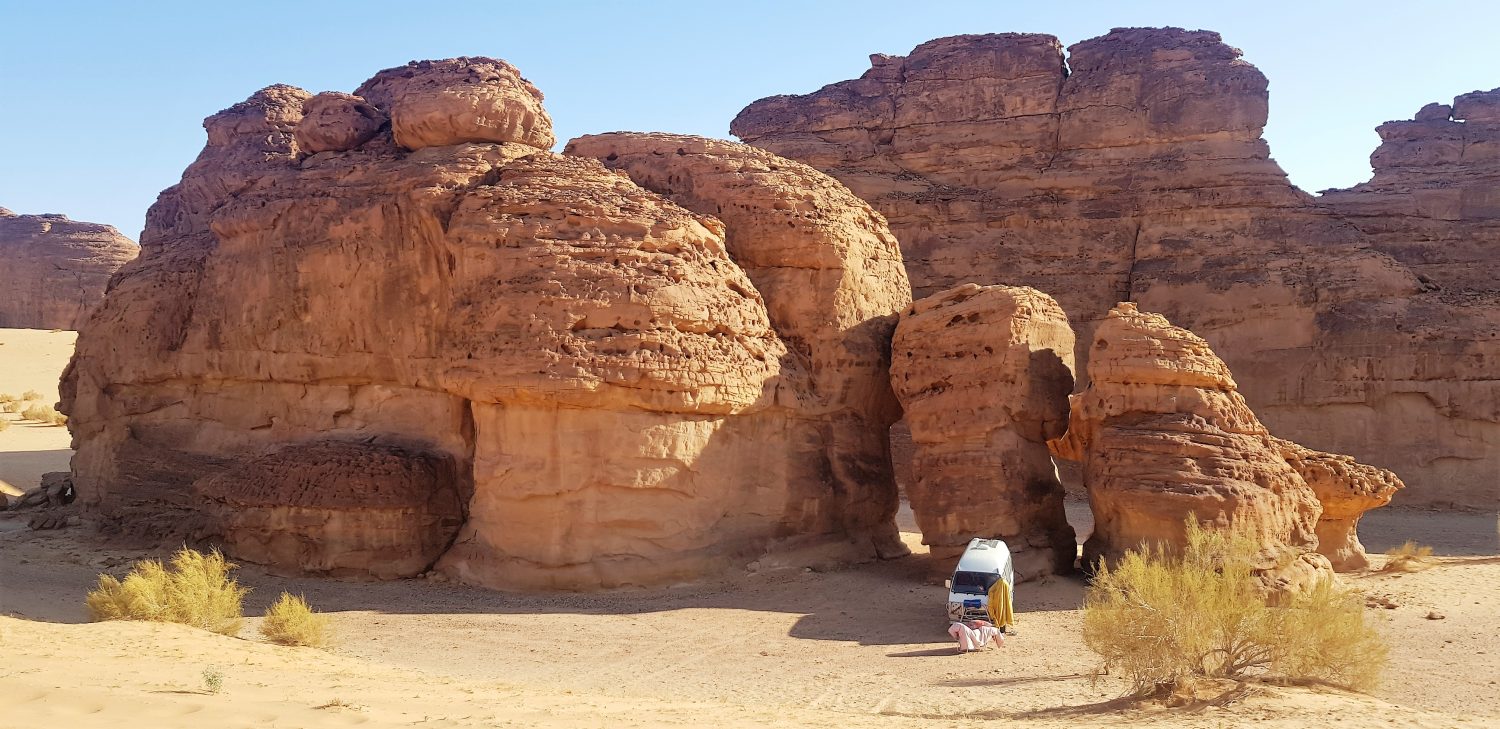
How did this overland adventure begin?
I’m originally German, but when I was 40 years old, I migrated with my son to Australia. So for the last 26 years or so, I’ve been living in Australia. During the journey, part of my intention was to find out where I wanted to spend the last years of my life and what location I would call home.
I lived in a remote area in Western Australia and worked for a big mining company. A few years back, I went into town in Port Hedland to the shopping mall, and there was an orange VW camper van parked there. They had written on it ‘from Germany to Australia.’ And I thought You can’t do that! That’s not possible! You can’t drive from Germany to Australia by car. So I made a little note on the window asking them to visit me, and they stayed with me for a week or something and told me about their journey.
I was in my last two years of work before retirement, and the meetings bored me [to tears]. I thought about buying myself a little teardrop camper van, putting it behind a 4WD, and driving it to Europe. Of course, I couldn’t travel with that car—that was clear very quickly—but the thought was born.

Was this trip a way to move back to Europe, or did you plan to return to Australia?
I worked hard for a long time and was looking forward to my retirement. For one thing, I didn’t know where to settle in Australia. It was clear I didn’t want to stay where I was, but how could I fill my days? I’m not a [homebody]; [things] like making jam and cooking for people—that’s not me. I thought, okay, what am I going to do? There were so many regions in the world that were blank spots on the map for me that I wanted to explore.
How did you decide which vehicle to take on the journey?
At first, I was scared of some things. On one side, I was extremely excited about what I was going to do. But on the other hand, all these unknown things could happen to me. Then one day, I just sat down and asked [myself], What am I scared of? I was scared of all these men out there, even though I’m at a progressed age. I thought I needed a van or car where I could jump from my bed to the front seat. So that’s what my decision was for the van, but I fell in love with a Hilux [first]. I flew to Queensland, got the dog there, and jumped into the Hilux, driving 6,000 kilometers across Australia. On the road, my dog had a terrible accident. He fell off a 10-meter high bridge and shattered both his legs. Then the Hilux broke down because it needed a new gearbox. I finally arrived home after this horrible trip, and I couldn’t register the truck because it was too heavy. It had a big wide camper on it. I had to start from scratch. That’s how, in the end, I found my Toyota Hiace van.
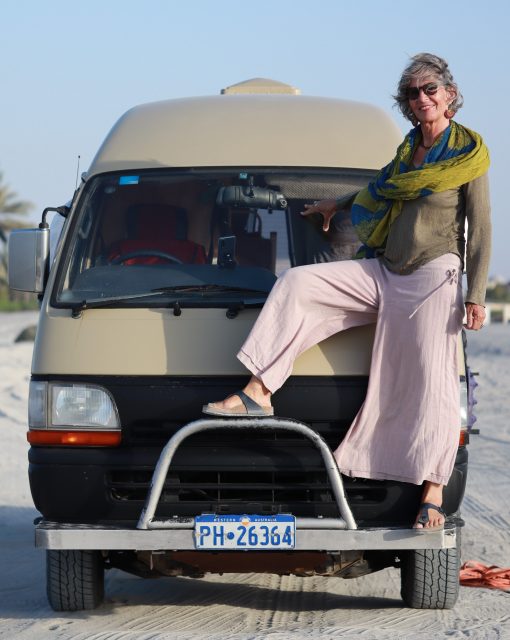
How long after you bought the van did you ship it to Vladivostok, Russia? How did you get your dog, Rexelby, there?
It took me three-quarters of a year to get my car finished and get everything set up organized. I left in April 2019 and drove the van 1,500 kilometers to Fremantle to ship it. The van was supposed to be delivered on the eighth of May but didn’t arrive for another three weeks because there was a storm in some of the harbors [on the way]. It was difficult for the dog to get to Vladivostok because he had to fly through Dubai and Moscow then across to Russia, but there was no other way of doing it because you can’t import a dog through Vladivostok. It was a stressful three weeks, not knowing what was going to happen.
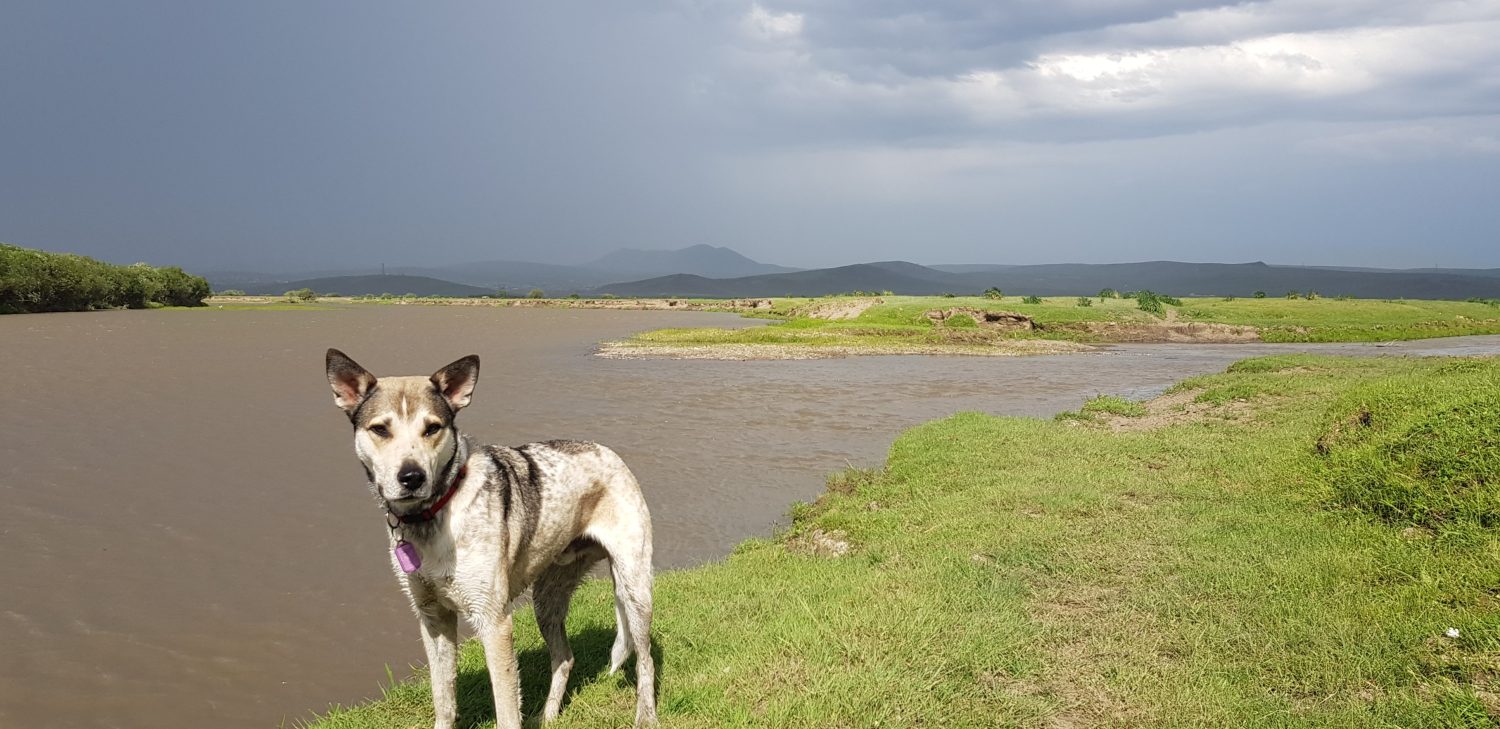
How easy was it to travel with a dog?
When my last dog died, I thought I didn’t want to have another but wanted to travel. But I felt I needed a dog for this journey for my peace of mind. I probably wouldn’t take a dog if I had to start again. I had one experience during all 80,000 kilometers where I said I would have needed him. Was the dog the reason that prevented things [from escalating]? Of course, you don’t know. But I never, ever felt threatened.
But traveling with a dog has advantages. Rexelby was a good conversation starter, often ending with invitations to people’s homes. When traveling through remote areas, he gives me comfort. I talk to him; he does not argue. Should I be sad (which does not happen often), he cares. After long days of driving, he needs to go for extensive walks, which gives me the much-needed exercise I normally wouldn’t get.
City visits were difficult, though. In most countries, dogs cannot come into restaurants, holy places, museums, etc., so he has to stay in the car. Rexelby needs a lot of exercise, so city life is rather hard on him. In Europe, you can put the dog into a dog hotel for the duration of the city stay; in most countries I traveled in, there are no such things. Having a dog was also a lot of fuss at the border. You have to get [paperwork from the] department for agriculture and a stamp in your dog passport.
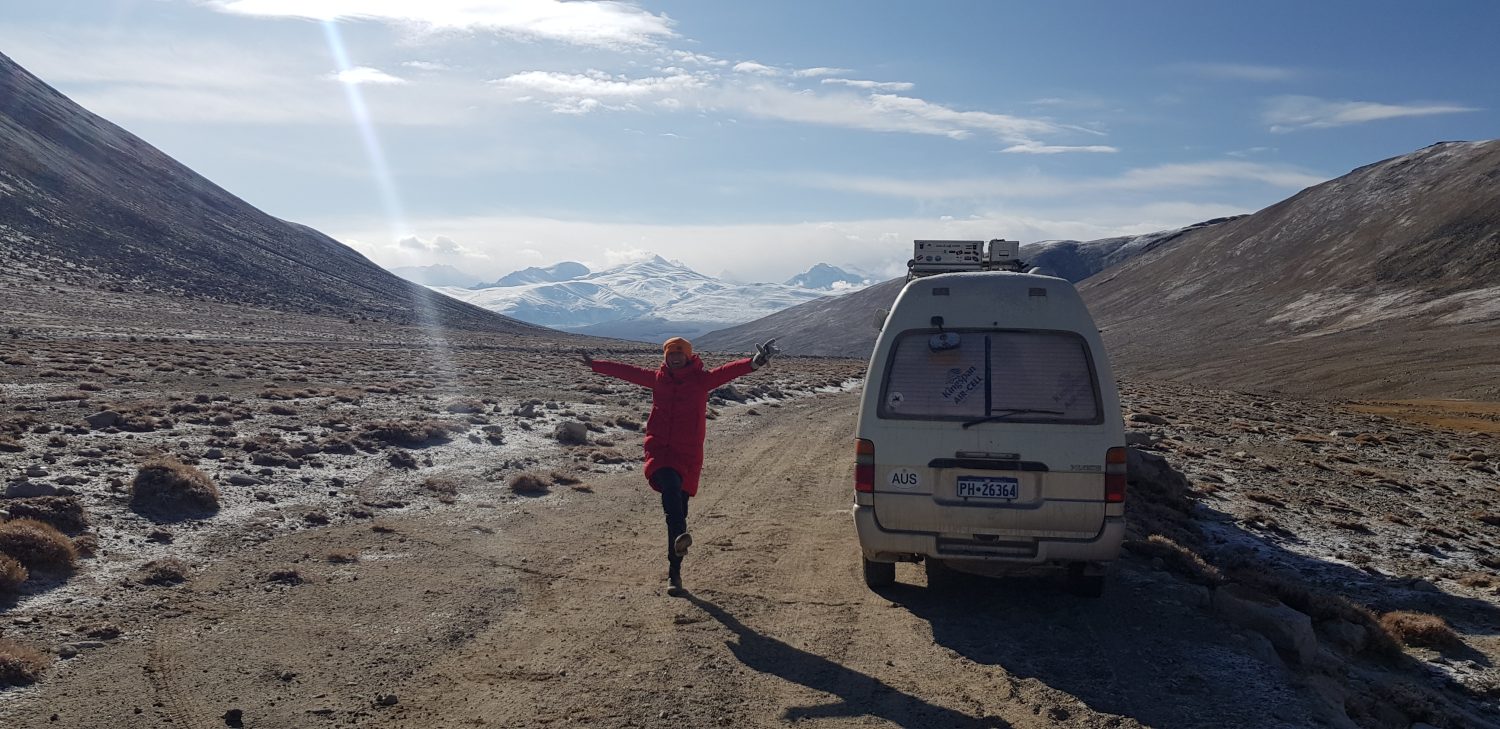
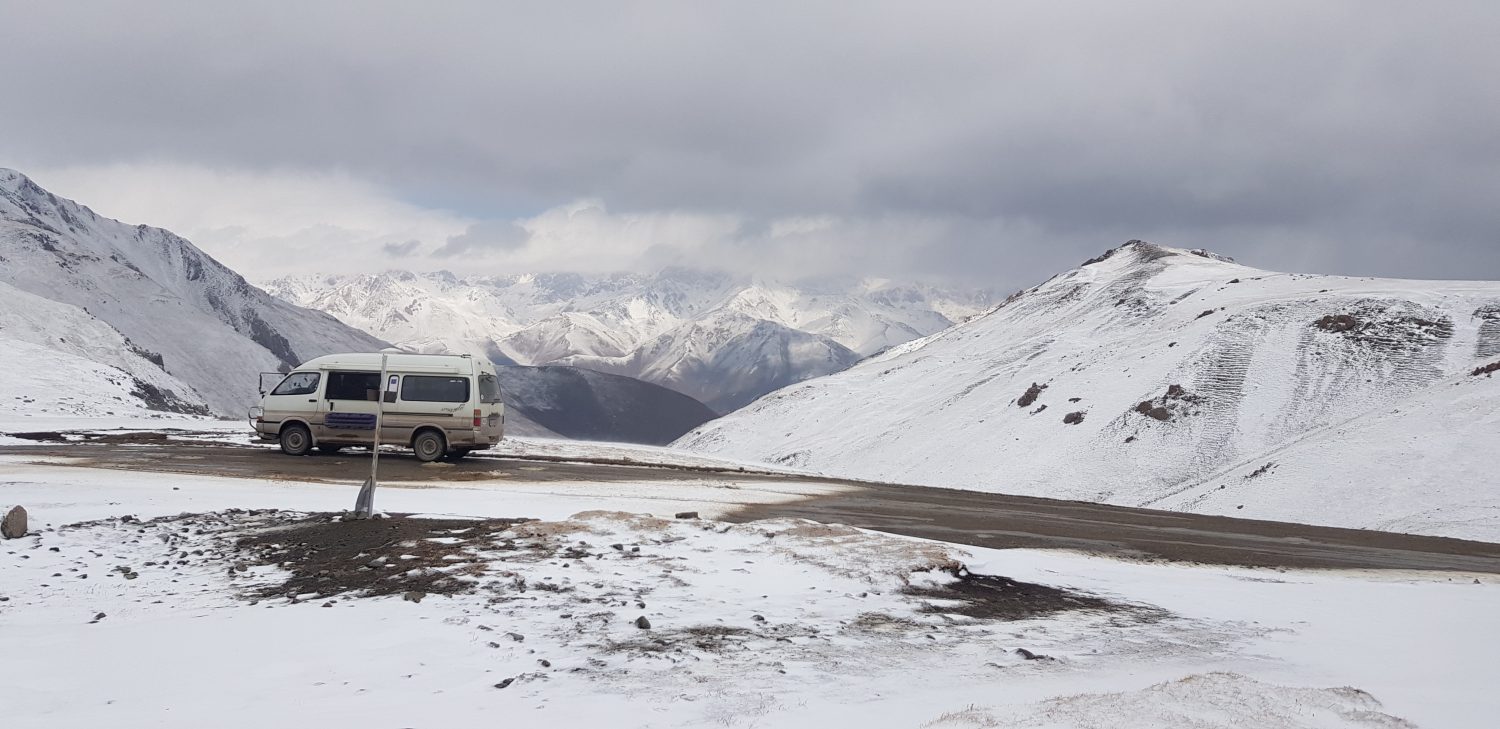
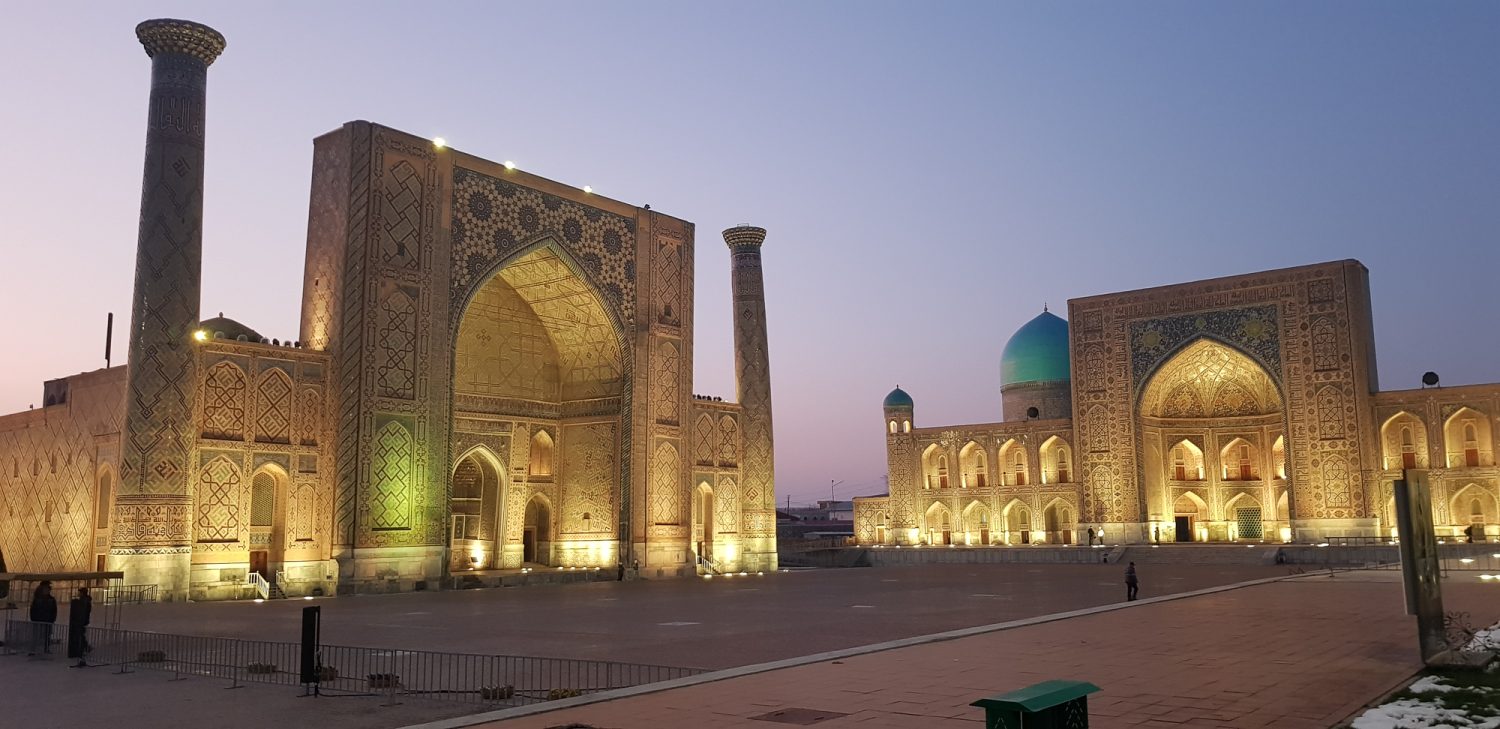
Why did you decide to ship to Vladivostok and travel through Russia first?
I definitely wanted to go to Mongolia. Mongolia was a big, big, big dream of mine. But I was really scared of Russia as well. Really scared. You know, these prejudices that one has block you from doing so many things that you could otherwise easily do. It confronts you with your limitations. You think I don’t like prejudices and I’m such a free-spirited person, and then you realize that’s not the case. But it’s wonderful to be able to break them down.
What was your mindset like when you first entered Russia, and how did it change as you moved through the country?
Russian bureaucracy is something I dreaded, and I felt that getting my car into Russia was an insurmountable mountain in front of me. I got myself an agent, and he sorted that out; he was fantastic. I think originating from Europe, the connections with Russia are the mafia, the money, lots of alcohol, and lots of violence. Frankly, the Russian people are so warm-hearted. It was no problem in Russia, no problem at all. I found the villages to be very pretty. You are in this deep Siberian countryside in the forest where the houses are painted blue, white, and green. You travel for days on end through forests, and suddenly, when you get closer to Lake Baikal, it opens up to steppe country, which is beautiful.
Coming from Australia, where the roads are smooth, it was a shock to come to countries like Russia with these big roads and ditches. There are big bumps, and you have to watch out for people overtaking. I was shocked and angry that a country [that] puts so much into [the] military and expansionism isn’t providing decent roads for their people.
When you eventually arrived in Mongolia, was it different from what you expected?
It’s always different than you’re expecting, but it definitely met my expectations—the wide, rolling green hills, the steppes, the rivers that criss-cross the roads. The roads are worse than anything I had ever seen in my life. There’s one pothole beside the other, and then somebody is coming toward you—everybody dodges. You have to look in the rearview mirror because somebody might overtake you while you’re dodging. Often, you don’t drive on roads at all. Suddenly, there isn’t one road going through the meadows and steppes, but five, six, or seven, and they go everywhere. All you do is hobble along these off-road tracks and follow your GPS and cross rivers. It is absolute four-wheel-drive heaven.
The people were also welcoming and friendly. I always regretted that my teapot was only for one person, so that I couldn’t make more tea. I was invited into a Mongolian yurt where the whole family cooked together. You have to drink fermented horse milk, which is hard to digest at times. [The experience] was very, very interesting.
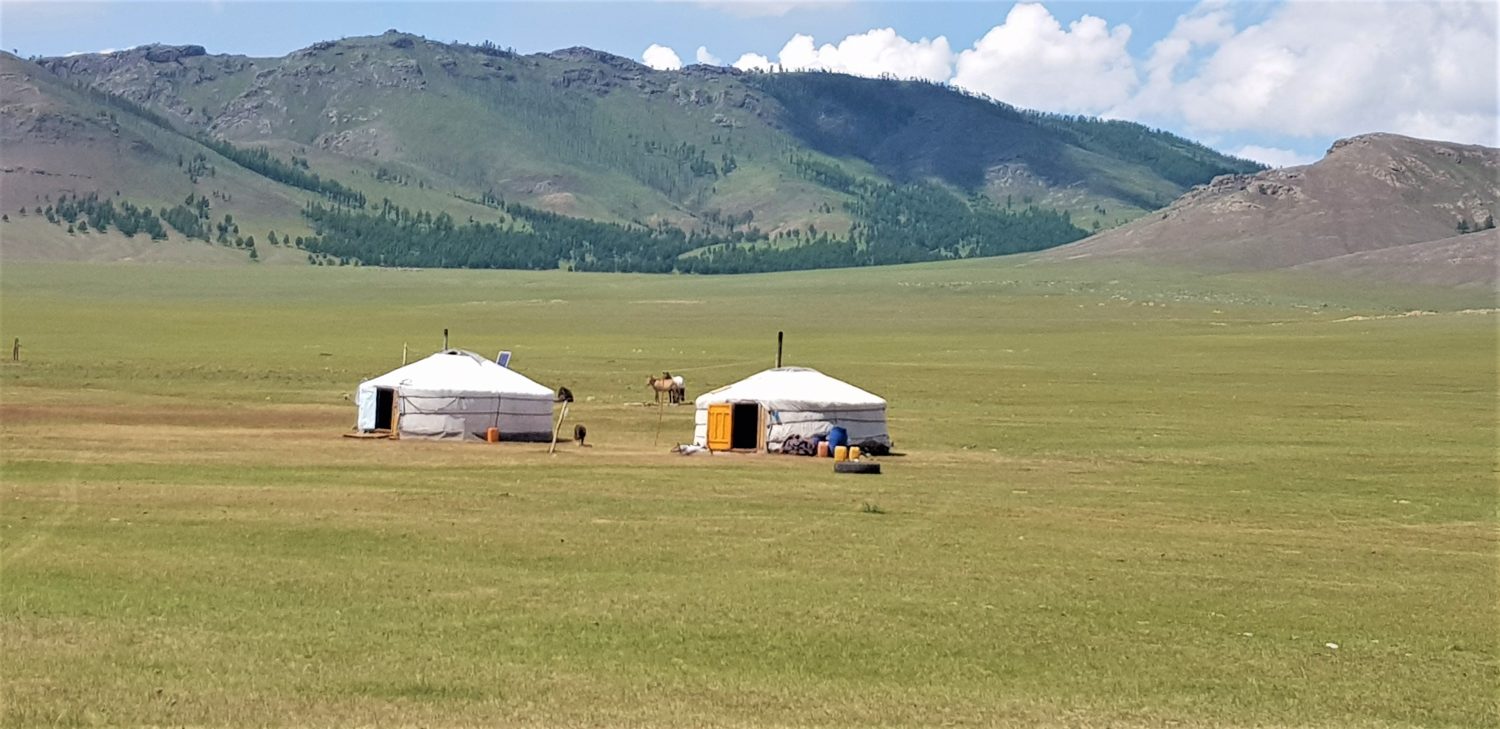
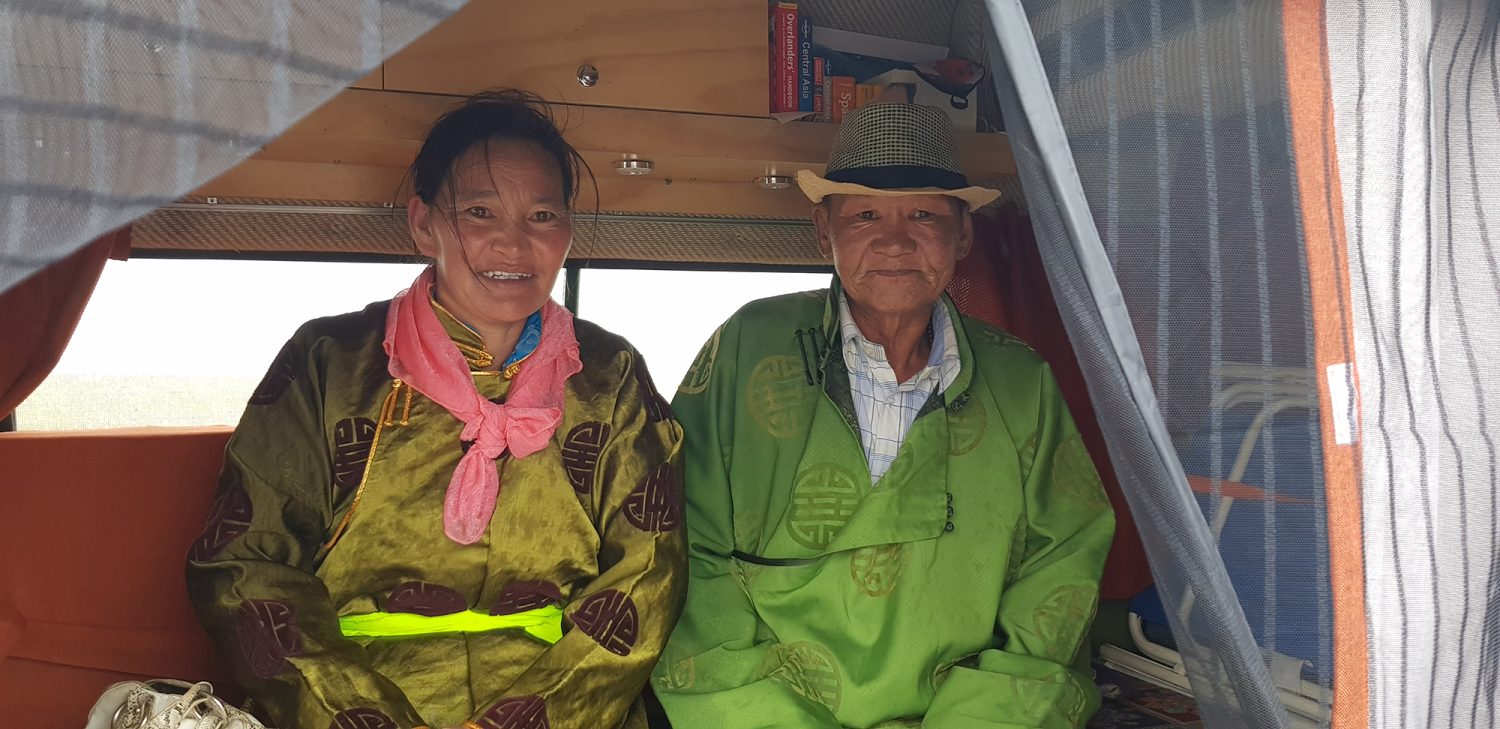
How was it finding places to camp along the way? Did your comfort level change throughout the trip?
Well, initially, it was difficult. Starting in Russia was my first experience traveling and finding places to camp. There was a lot of fear involved as well. But after a while, you find you have to stop before it gets dark, look for a nice spot, and that’s where you are. One morning in Iran, I was welcomed by a policeman knocking on my door at 5:00 a.m. I spoke a bit of Farsi, and he asked, “Well, where is the man?” And I said, “There is no man.” Of course, he didn’t believe it, and then he got between a rock and a hard place, because on one side was the dog, and I was in my pajamas, and he wanted to look into my car, and in Iran, you can’t look into a car with a pajama-clad woman inside. It’s happened a few times that somebody asks what you’re doing [in a place], but you learn to trust yourself and the people in those regions.
I prefer to camp in areas where there aren’t that many people most of the time or in a city where there are a lot of people. In some areas, I think the Islamic culture prevents people from approaching a woman. In Kyrgyzstan, wherever I was, I was invited for tea. I thought, if people come to my van, I would like to invite them for tea as well. I asked a woman, can I do this if a single man is coming? And she says, ‘Ah, you know what? If it’s a Muslim man, no problem at all. It’s the Christians—these are the ones you have to take care of.’ Almost wherever you are, it turns around. It’s always a different perspective.
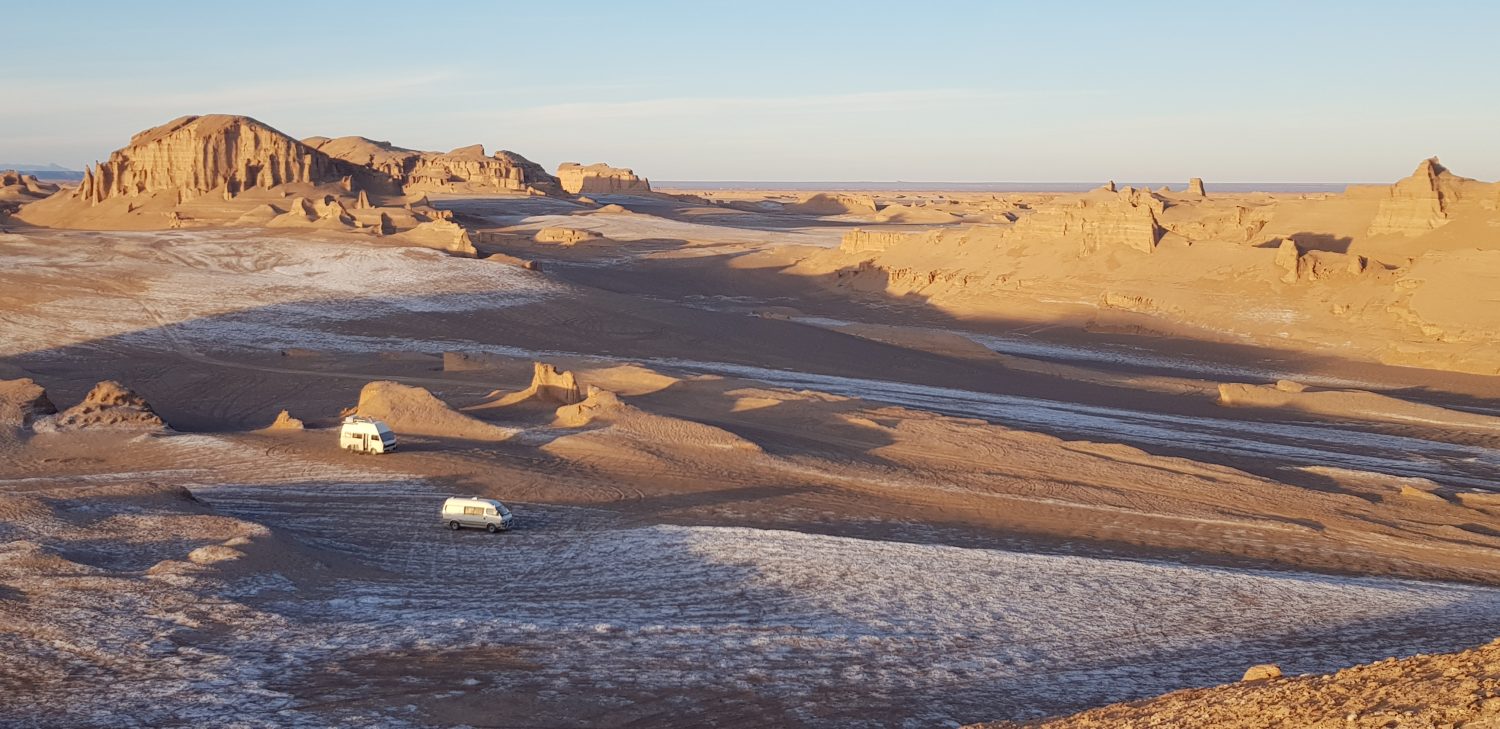
When you traveled through predominantly Muslim countries such as Iran and Saudi Arabia, did you make any adjustments, say to your wardrobe or behavior to try to fit in a bit more?
I spoke a little bit of the language, and I knew a bit more of the country because I was in Iran before, and the father of my son was Iranian. I’ve always had an affinity for these countries. I would never wear a chador, but nobody expected that, and most women in Iran weren’t wearing one either. I do remember those insecurities before I traveled to Iran—looking at my wardrobe, wondering what the rules were about the ankles and feet. Wherever I go, I have a look at how the women dress and adapt to it.
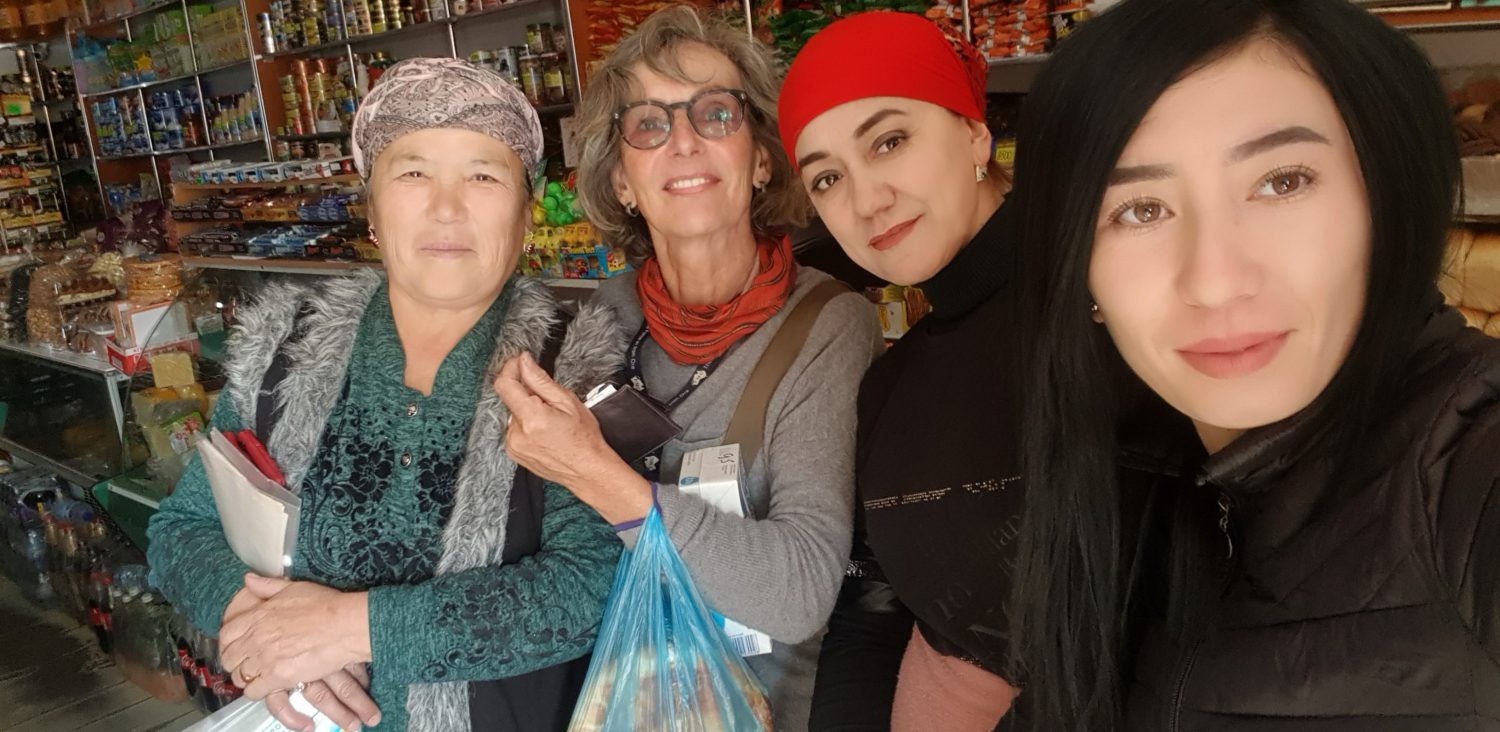
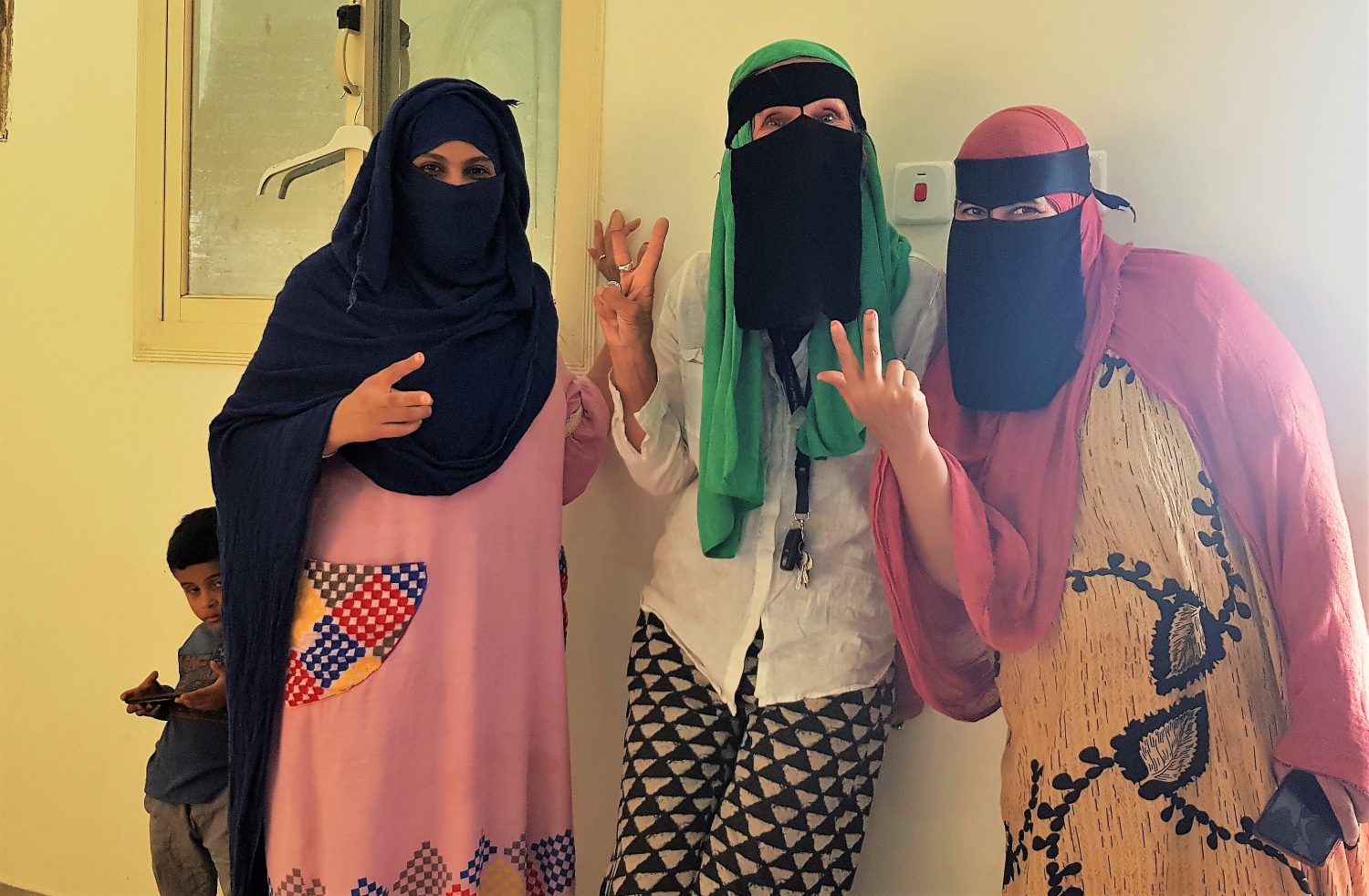
What was your experience as a woman traveling solo?
I found lots of support from other women. Regardless of where I was, they opened their hearts and homes to me. They gave me their friendship, they gave me support, they gave me family. Far away from home, friends, and family, they gave me the feeling of being valued and loved. Some people travel mainly to see the culture or the landscapes. Yes, I saw many sights which made me want to cry for their beauty. But what touches me the deepest, and the reason I cherish my travels so much, are the people I get to know along the way, [and the opportunities to] better understand their customs and [gain] insight into the nuances of their culture. We Westerners often misjudge and misunderstand. No matter the cultural background, religion, color of their skin, whether they are rich or poor, female or male—deep down, we are all the same and have the same needs. We all want a roof over our heads, food on the table to feed our children, and to live in peace.
Many women asked, ‘How did you live in a country like Saudi where, as women, they are so repressed?’ I have to say that I never felt as respected as I did in Saudi and Iran. When I needed to, or if they offered me their help, I jumped in with any man into their car. I’m at a progressed age, but I received three marriage proposals, so age doesn’t matter. For a young woman, of course, it might be a big difference. I don’t know what their experiences will be. But yes, I felt respected and valued. It was for me, as a woman, a wonderful time.
The picture that we have of the Saudi women and their relationship is totally different. I met a family where the woman lives in Australia, and she’s studying and took the children with her. [Her husband] lives in Saudi, and they have a fully functioning relationship. He goes to Australia whenever he can, and she comes to Saudi.
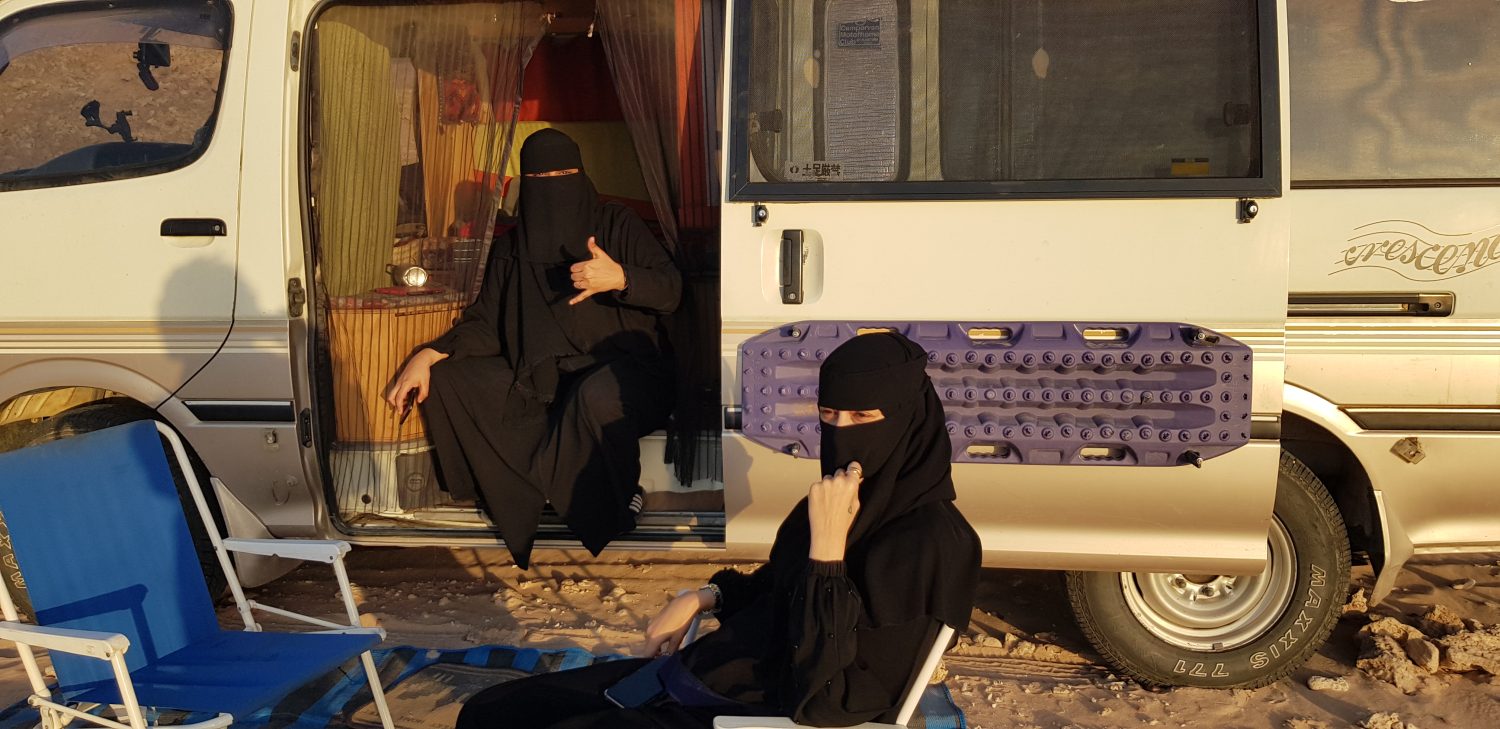
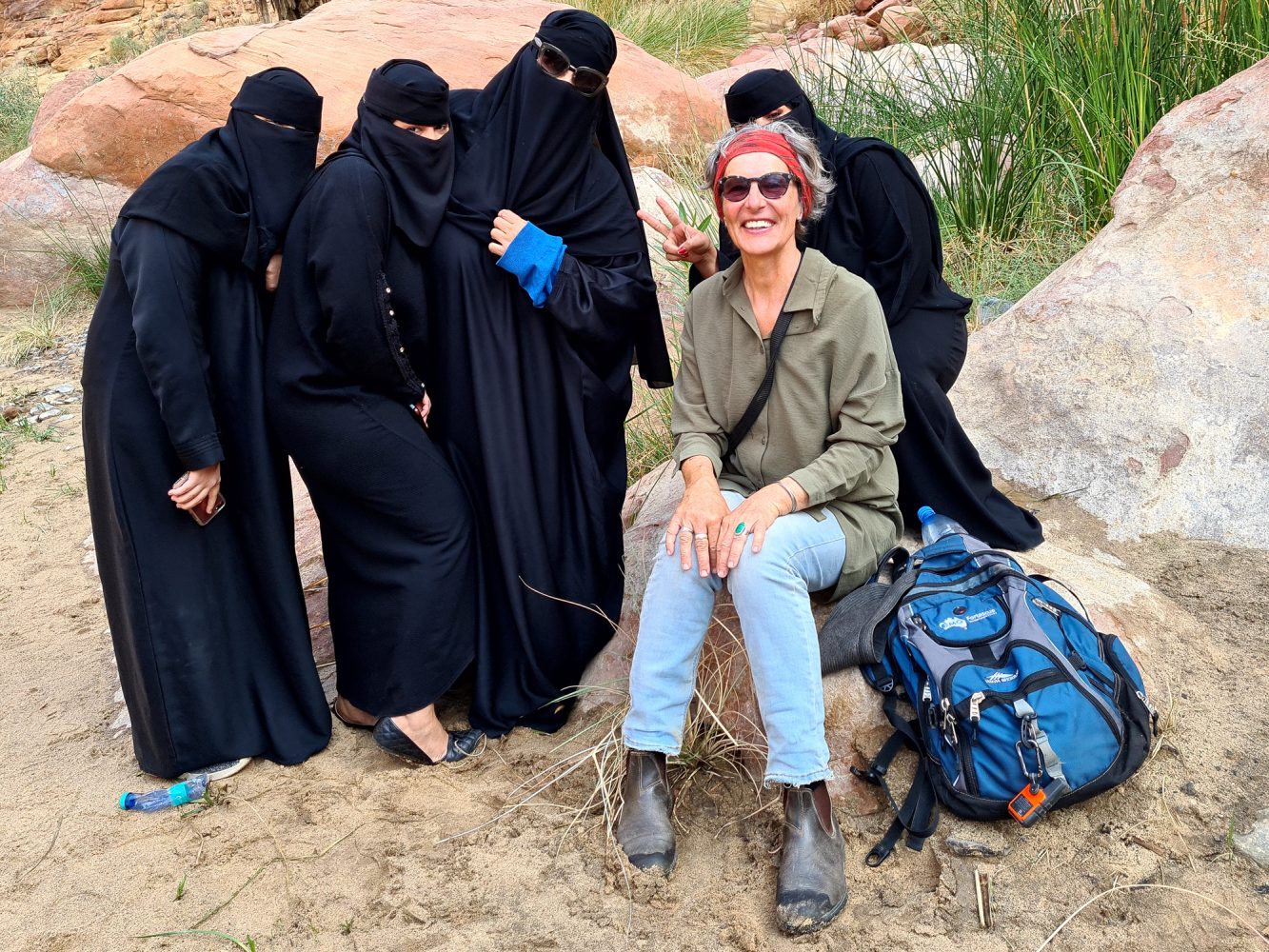
You were traveling through Saudi Arabia when Covid-19 was declared a pandemic. How did this affect your travels?
I arrived in Saudi in February 2020 and traveled for a month. Then Covid-19 happened, and it suddenly got difficult. I wasn’t able to stop everywhere anymore. I met Daniela [Wagner]—I think you published an article of hers on Expedition Portal—and we founded a WhatsApp group to keep in touch. Suddenly, the borders closed. Some Saudis offered a holiday house, a hut in the mountains because it started to get hot. We stayed there for one month, and we were brought bread every morning [and given] dips, boxes of fruit and nuts, masks, and gloves. We lived together in the house, and eventually, it was just me because I couldn’t go to Germany or Australia.
In October, I started traveling again, and after this one month, I learned to know the people and what makes them tick. You learn what you find offensive; for example, if you’re sitting in your van, they drive up behind your van and honk. You think, if he wants something, why is he not coming over? But they do this for politeness because as a woman, you need to have a chance to cover yourself up again. They will not come over until they are invited. So things like this—you think it’s offensive, but it’s just gentleness and generosity.
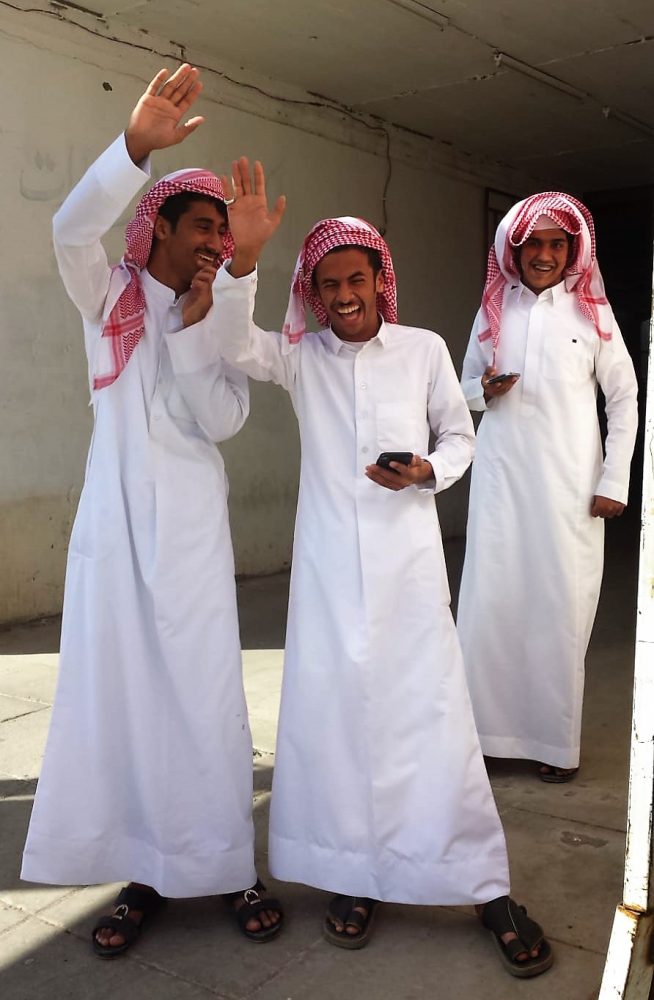
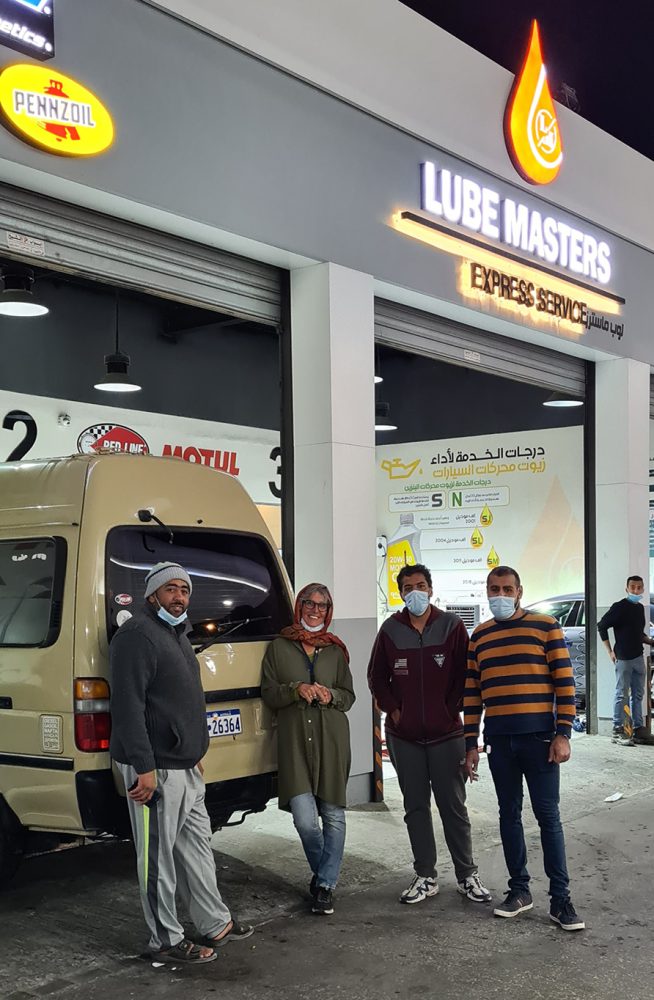

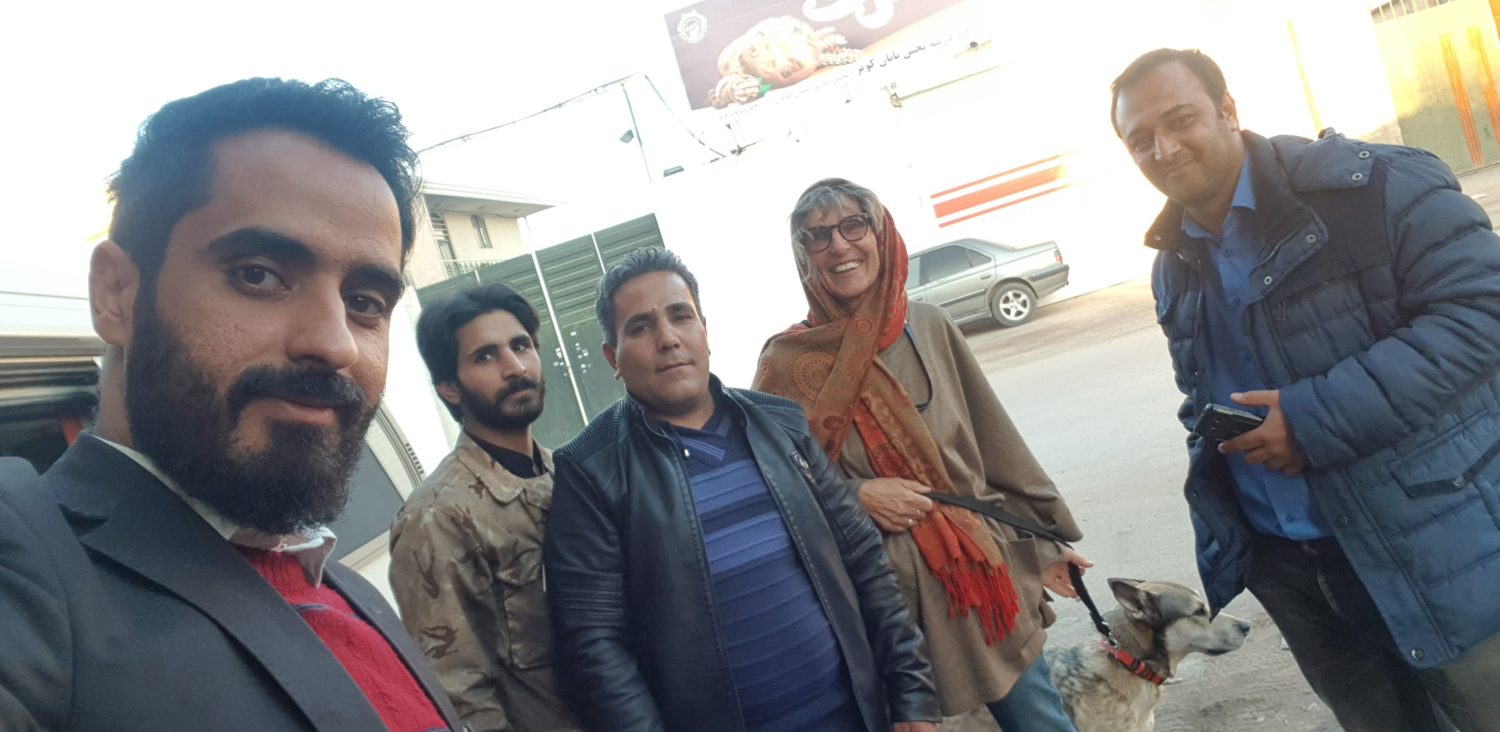
Another thing you’ll find is they push you off to the side of the road and stop there. [You’ll find this is] because they want to invite you to their homes. A policeman came driving up [behind me] with his horn and siren on, and I thought, “Oh, my god.” It took him a while, but he arrived with a little cup of coffee and said, “Welcome to Saudi.” I was invited into Bedouin camps and taken on falcon hunts and on camels and horses. They took me to their homes; they showed me everything. They repaired my car and filled up my gas bottles for free—men and women alike.
I’m so grateful that I could not leave Saudi for a year. This gave me the possibility to immerse myself into the culture and talk to so many women and men about their relationships. How does it work with marriage proposals? What are they allowed or not allowed to do? Why are they doing things this way? I learned so much, and I have a list of things that I need to go back and explore.
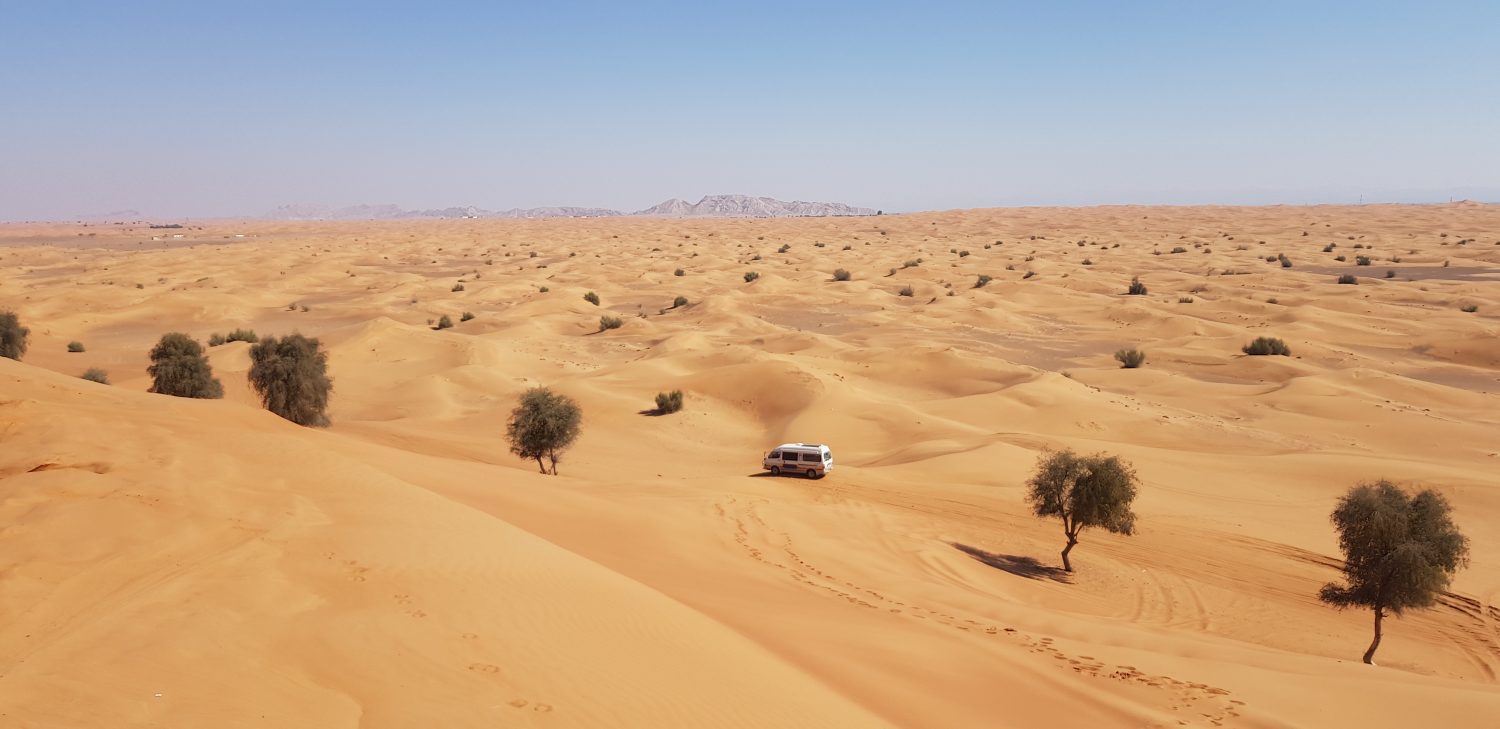
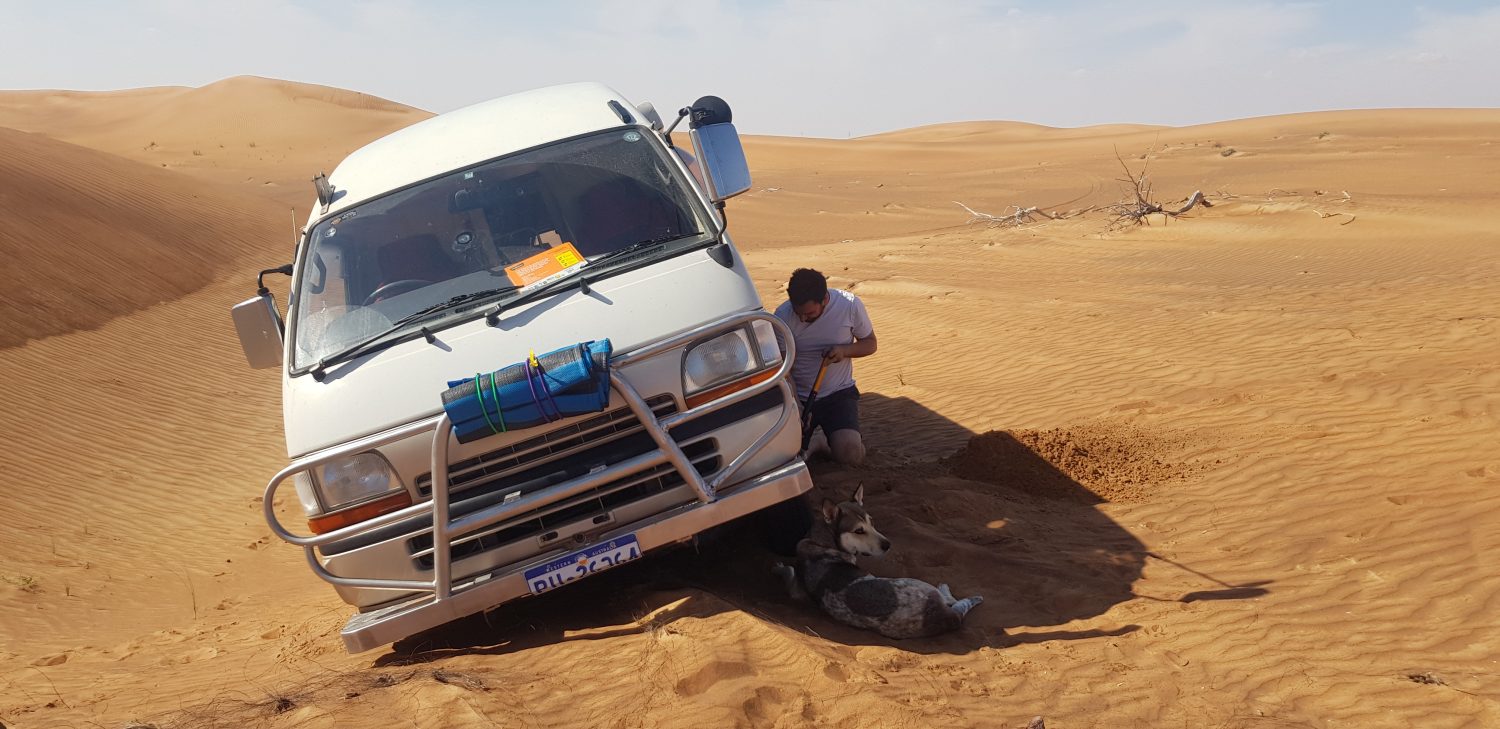
How did this journey change you?
I finally found myself. I learned to trust myself and be confident in what I can do and in what I want. There were so many puzzle pieces of myself floating in the universe, leaving huge gaps in the picture of who I am. During this trip, I was able to catch a lot of them and put them together to bring the puzzle closer to completion. Some pieces are still missing, but my journey hasn’t ended yet.
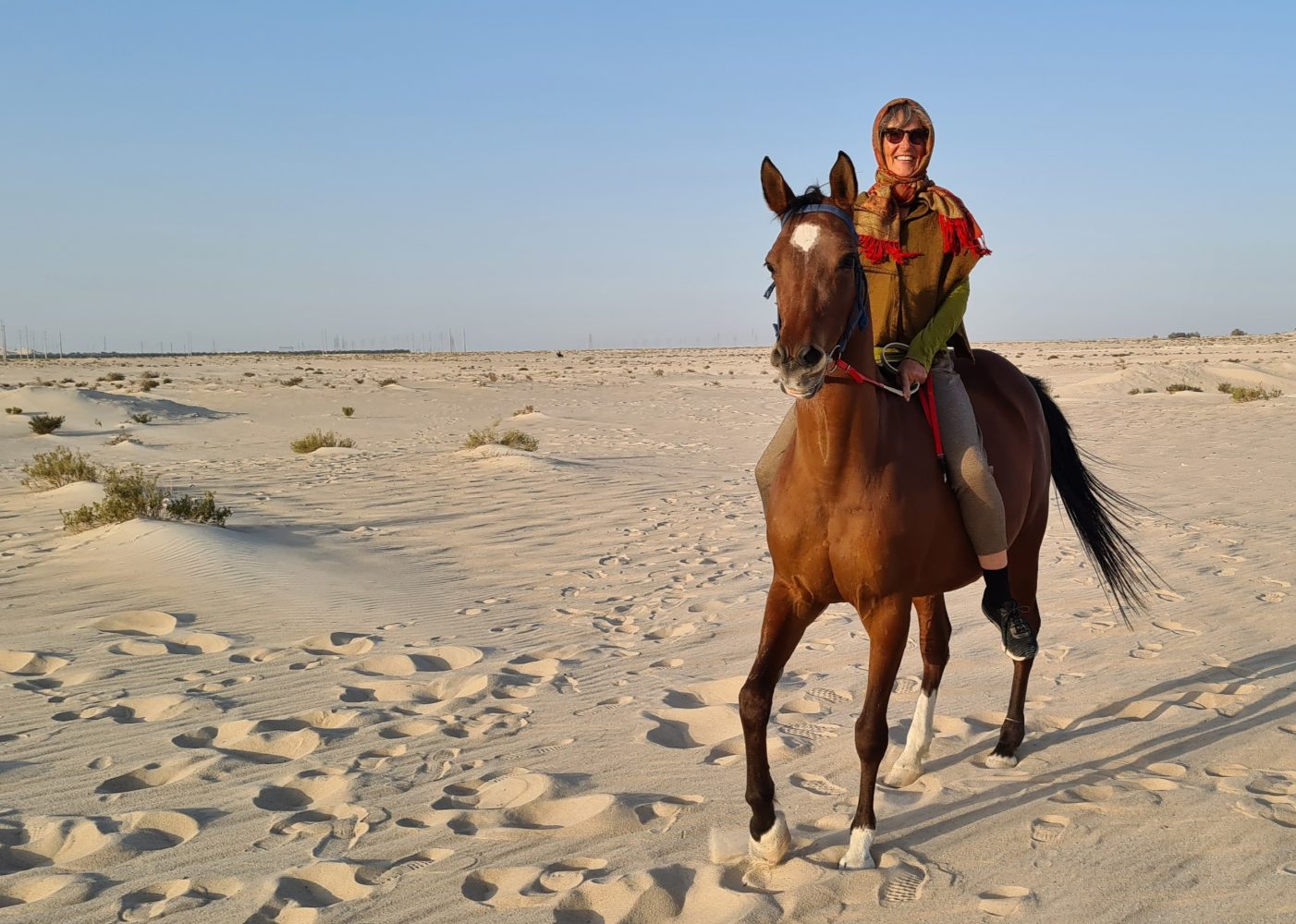
Follow Elisabeth’s journey via findpenguins.com/elisalolarexelby and on Instagram @elisalola_rexelby.
Our No Compromise Clause: We carefully screen all contributors to ensure they are independent and impartial. We never have and never will accept advertorial, and we do not allow advertising to influence our product or destination.


